-
U.S. assisting Ukraine investigate 23 December cyberattack on power grid
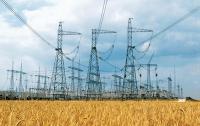
The United States is helping Ukraine investigate last month’s cyberattack last month which disrupted the country’s power grid and left some 80,000 customers without power. Experts say that the 23 December attack against western Ukraine’s Prykarpattyaoblenergo utility was the first known power outage caused by a cyberattack.
-
-
Nepal’s destructive post-earthquake landslides raise parallels for Pacific Northwest
Following the Nepal earthquake — even during the dry season when soils were the most stable — there were tens of thousands of landslides in the region. These landslides caused pervasive damage as they buried towns and people, blocked rivers, and closed roads. Expert estimate that the Nepal earthquake might have caused between 25,000 and 60,000 landslides. The subduction zone earthquake likely to occur in the future of the Pacific Northwest is expected to be larger than the event in Nepal.
-
-
The impact of rising sea levels on Rhode Island
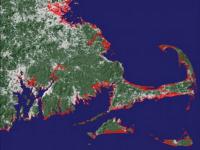
Climate change will bring profound changes to Rhode Island’s coastal communities in the coming decades. Scientists project sea levels to rise 3 to 5 feet in the state by 2100, and recent government projections are as high as 7 feet. Now, University of Rhode Island students are studying one community that could be hit especially hard: Matunuck. The year-long analysis by eight senior ocean engineering students is so thorough that flooding projections were made for specific structures —709 to be exact. Those home and business owners will be able to find out what could happen to their buildings during a powerful storm with rising sea levels up to five feet.
-
-
Toxins found in fracking fluids and wastewater: Study

In an analysis of more than 1,000 chemicals in fluids used in and created by hydraulic fracturing (fracking), researchers found that many of the substances have been linked to reproductive and developmental health problems, and the majority had undetermined toxicity due to insufficient information. The researchers say that further exposure and epidemiological studies are urgently needed to evaluate potential threats to human health from chemicals found in fracking fluids and wastewater created by fracking.
-
-
Gov. Brown declares emergency in wake of massive L.A. natural gas leak
California governor Jerry Brown on Wednesday declared an emergency in a Los Angeles neighborhood where a natural gas well has been spewing record amounts of stinking, global-warming methane gas. Energy experts said the breach at the natural gas storage reservoir, and the subsequent, ongoing release, are the largest known occurrence of its kind.
-
-
Redirected flood waters leading to unintended consequences

An intricate system of basins, channels, and levees called the Headwaters Diversion carries water from the eastern Missouri Ozark Plateau to the Mississippi River south of Cape Girardeau. The system protects 1.2 million acres of agricultural lands from both overflow from the Mississippi River during flooding events and from Ozark Plateau runoff. Climate scientists predict a continued pattern of extreme rainfall events in the upper Mississippi River region, suggesting that unexpected above average rainfall events in the Ohio and Mississippi River basins will continue to increase the frequency of extreme flooding events on these rivers.
-
-
Extreme weather increasingly threatening U.S. power grid
Power outages related to weather take out between $18 billion to $33 billion from the nation’s economy. Analysis of industry data found that these storms are a growing threat to, and the leading cause of outages in, the U.S. electric grid. The past decade saw power outages related to bad weather increase, which means that power companies must find a way address this problem.
-
-
Global electricity production vulnerable to climate change, water resource decline

Climate change impacts and associated changes in water resources could lead to reductions in electricity production capacity for more than 60 percent of the power plants worldwide from 2040-2069. A new study calls for a greater focus on adaptation efforts in order to maintain future energy security. Making power plants more efficient and flexible could mitigate much of the decline.
-
-
Making cleaner fuel cells

There is a near unanimity in the scientific community that the average temperature on the planet is rising and this is happening because of the increased concentration of carbon dioxide in the atmosphere. Radically redesigning virtually all technological infrastructure is not possible without an acceptable alternative to internal combustion engines: either electric accumulators and electric motors, or fuel cells with electric motors. Fuel cells themselves will not solve the problem of rising temperatures on the planet, but they are part of a possible solution. Researchers have developed ion-exchange synthetic membranes based on amphiphilic compounds that are able to convert the energy of chemical reactions into electrical current.
-
-
As storms continue to batter U.K., estimates of cost rise
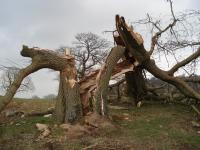
As Storm Frank – which is following on the heels of Storms Eva and Desmond — continues to batter England, Scotland, and Wales, estimates of the cost of the damage wrought continue to rise. The total economic loss caused by the three Storms may well breach £3 billion – and these projections do not include any government spending on flood defenses, estimated to be between £2.3 billion and £2.8 billion.
-
-
Developing materials for more resilient concrete pavements

Aging roadways pose a growing threat to transportation infrastructure which is critical to the health of economies throughout the world. Beyond the daunting task of funding extensive restoration efforts, there is an equally pressing challenge to find ways to rebuild major roads which are more sustainable. Researchers have been experimenting with what are called phase-change materials to produce more resilient concrete surfaces for roads and bridges. Phase-change materials are substances which respond to temperature variations by changing their state from solid to liquid or vice versa, and can be sourced from petroleum (such as paraffin wax) or be plant-based. A new project is exploring the use of a phase-change material solution for reducing or preventing temperature-related cracks in concrete pavement.
-
-
Self-compacting concrete is now fire resistant as well
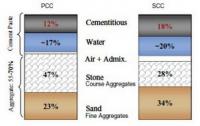
Self-compacting high-performance concrete (SCHPC) has till now suffered from one weakness — when exposed to fire it flakes and splits, which reduces the loadbearing capacity of ceilings, walls, and supporting pillars, thus increasing the risk of collapse in a burning building. Scientists have now developed a method of manufacturing fire resistant self-compacting high-performance concrete which maintains its mechanical integrity under these conditions.
-
-
U.K.: Economic costs from flooding could reach £1.5bn, reduce GDP growth
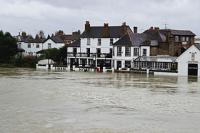
Economic losses caused by the flooding which has devastated parts of Britain in the past few days could exceed 1.5 billion pounds, and shave 0.2-0.3 percent off GDP growth overall in the first quarter of 2016. Insurers will likely shoulder the bulk of the burden after first Storm Desmond and then Storm Eva saw waters swamp large swathes of the country.
-
-
U.K. government rejected flood warnings from own advisers
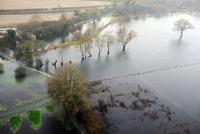
Critics charge that the U.K. government was warned by both the government’s own climate change experts and outside consultants that there was a need to take urgent action to protect the increasing number areas in Britain which are becoming susceptible to flooding, but that the government rejected the advice. Despite the urging of its own climate experts, the U.K. government in October, just a few weeks before the devastating flooding in Cumbria, decided not to develop comprehensive strategy to address flood risk.
-
-
Climate change losses for Southeast Asia well above previous estimate: ADB
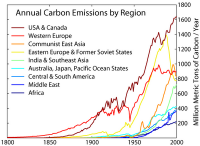
Economic losses from the impacts of climate change in Southeast Asia could be 60 percent higher than previously estimated, reducing the region’s gross domestic product (GDP) by up to 11 percent by 2100, according to a new Asian Development Bank (ADB) study. The analysis is an update to a 2009 ADB report that estimated a 7 percent annual reduction in economic output due to climate change.
-
More headlines
The long view
Helping Strengthen America’s Critical Infrastructure
By Corinne Dionisio
Everyday life depends on a robust infrastructure network that provides access to running water, communications technology and electricity, among other basic necessities. The experts who keep our national infrastructure secure and resilient also need a strong network to share their knowledge and train the next generation of professionals capable of solving complex infrastructure challenges.
AI and the Future of the U.S. Electric Grid
By Doug Irving
Despite its age, the U.S. electric grid remains one of the great workhorses of modern life. Whether it can maintain that performance over the next few years may determine how well the U.S. competes in an AI-driven world.
Using Liquid Air for Grid-Scale Energy Storage
By Nancy W. Stauffer
New research finds liquid air energy storage could be the lowest-cost option for ensuring a continuous power supply on a future grid dominated by carbon-free but intermittent sources of electricity.
Enhanced Geothermal Systems: A Promising Source of Round-the-Clock Energy
By Julie Bobyock and Christina Procopiou
With its capacity to provide 24/7 power, many are warming up to the prospect of geothermal energy. Scientists are currently working to advance human-made reservoirs in Earth’s deep subsurface to stimulate the activity that exists within natural geothermal systems.
Experts Discuss Geothermal Potential
By Graeme Beardsmore and Rachel Webster, University of Melbourne
Geothermal energy harnesses the heat from within Earth—the term comes from the Greek words geo (earth) and therme (heat). It is an energy source that has the potential to power all our energy needs for billions of years.
